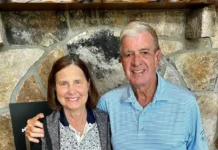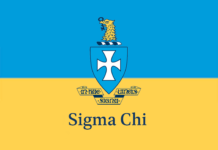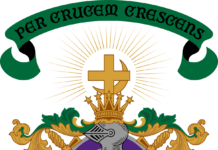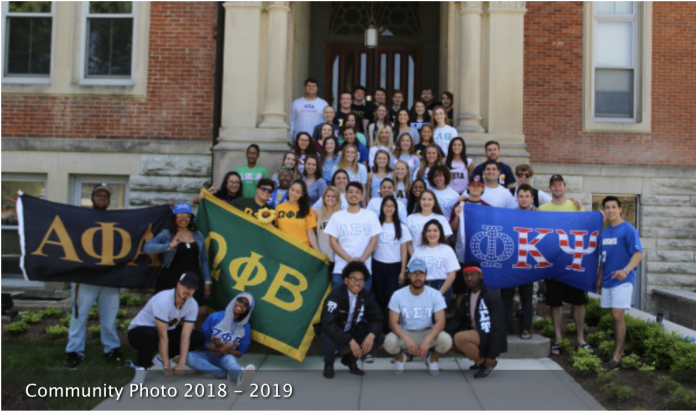Formal recruitment for DePauw University’s Fraternity and Sorority life ended on Sunday, Jan. 31, just before the start of the spring semester, with many of DePauw’s students still residing off-campus. Due to COVID-19, recruitment was conducted over Zoom in its entirety. According to Lori White, participation in Greek life is down ten percent from last year.
The process was extended to a week, rather than the typical three days, because of the online format, said junior Trevor Hoftiezer, former president of Delta Upsilon.
DePauw’s campus is home to 23 sororities and fraternities– 10 chapters in the Interfraternity Council, 6 chapters in the Panhellenic Association, 4 chapters in the Multicultural Greek Council, and 3 chapters in the National Panhellenic Council.
Greek Life is a large part of DePauw’s culture and “an intrinsic experience to DePauw,” said Hoftiezer. “I think, day one, it’s just there as a DePauw student.”
Several first-year students who participated in recruitment agreed with Hoftiezer, stating that the dominant Greek community at DePauw was something they’d been aware of as prospective students before deciding to attend the university. “I’d heard about Greek Life opportunities just from Day One,” first-year Jude Hunter explained. “It’s obviously a big part of DePauw.”
DePauw University’s website has a section dedicated to fraternity and sorority life, and new students receive emails with opportunities to familiarize themselves with Greek organizations. According to junior Alexander Hlade, president of Sigma Alpha Epsilon, promotional events like Greek Week are intended to introduce students to chapters on campus, however, COVID-19 regulations made these traditions impossible.
DePauw Chapters’ recruitment goes virtual
Though recruitment for the IFC and Panhellenic Association was held virtually, it still took place in three rounds. During the first round of formal recruitment, participating students are introduced to each chapter. The Potential New Members (PNMs) then narrow down their options, choosing either five of the IFC fraternities or four of the Panhellenic sororities. The chapters also consider the candidates they are interested in. For the final round of recruitment, PNMs visit their top two house choices. The chapters then place their bids, formal invitations for PNMs to join their chapter. According to Daylon Weddle, the assistant director of Fraternity and Sorority Life, student leaders are in charge of the specific recruitment process, but the school helps arrange the dates to fit within the academic calendar.
During virtual recruitment, PNMs learned about the fraternities and sororities in the main calls, then entered break-out rooms with members, getting to know each other better by learning about the “Greek” experience, said Hunter.
Rho Gammas work closely with PNMs during the recruitment process as a resource on Greek life, remaining unaffiliated with their chapter to avoid recruitment participants feeling pressured to make a specific decision. Hunter found the Rho Gammas helpful. Each fraternity and sorority has two members as Rho Gammas, who guide PNMs through the recruitment process without adding any pressure to join their specific chapter, according to Hlade.
Chapters respond to a drop in PNM this year
Reduced interest in Greek life due to the pandemic led to complications for Greek chapters, said Hlade. His fraternity, SAE, anticipated a smaller number of students interested in Greek life because of DePauw’s smaller first-year class. According to an email from Dr. Lori White to faculty, 52 percent of first-year students joined an IFC or Panhellenic chapter this year; 62 percent of first-year students in 2020 had joined a chapter.
Both Hoftiezer and Hlade talked about the importance of inclusion and accessibility to chapters in combating this trend. This scrutiny of the Greek systems is “allowing fraternity and sorority life to evolve and take a new shape, where we’re seeing fraternities take a clear stance against hazing and just really try to support each other in ways that are beneficial,” Hoftiezer said.
One goal of the Department of Fraternity and Sorority Life is to be “adaptive to what the students’ needs are,” Weddle said. According to Weddle, the university was also in the process of on-boarding a new director for the department of Fraternity and Sorority Life, who is moving to DePauw this upcoming week. Once the transition has been made, Weddle believes “there’s going to be a lot coming,” in terms of the department’s ability to support the “students’ experience.”
Although both chapters and PNM’s worked to “make the best of the situation,” according to Hunter, many first-year students found it difficult to get a feel for the physical spaces of the houses and their potential living situations virtually. “I had a lot of questions about the houses because you weren’t able to go into the houses; you could only get videos of it,” Harris said.
“I know that it’s hard to find a house that you’re comfortable in over Zoom, for sure, and I know that a lot of girls dropped out this year, actually, because of that,” said first-year Emma Stemen, a PNM.
Overall, however, Harris, Hunter, and Stemen all felt they had a good experience. “I thought it went really well for me, and I think it went really well for my friends who went through recruitment as well,” said Harris.






















